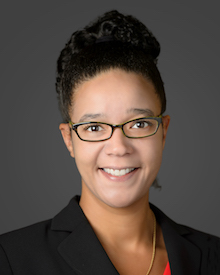
Renee Madison, senior advisor to the president for diversity and compliance and Title IX coordinator is the organizer of DePauw Dialogue.
TDP: How have you seen DePauw Dialogue transition through the years?
M:One of the biggest evolutions is being able to provide opportunities for people to enter conversations that way. This year we are trying to re-emphasize the dialogue part and have sessions where everyone is able to engage in actual conversation as opposed to a lecture. Sometimes we’re not 100 percent successful with that goal, but that’s certainly the goal with our workshops, our skillbuilding sessions, and also community time.
TDP: Why is DePauw Dialogue not mandatory? What components went into making that decision?
M: It’s a little bit of a dual message. When I say dual message, I mean that for the [Gold] Commitment there is an expectation that you attend DePauw Dialogue. Our first-year that we explored making DePauw Dialogue mandatory, there were a number of students who protested that and a number of faculty as well. There are different philosophies related to making it mandatory. There certainly is an expectation of attendance. It is a day in our academic calendar and so just like you are expected to attend class, you are expected to attend DePauw Dialogue. Folks have raised objections because for people who are resistant or do not believe that DePauw Dialogue or any kind of anti-bias, anti-racist education sessions help in a way that is meaningful and productive, has been one argument that has been made. The freedom to choose has been another argument and this is part of their rationale for why we’ve made sure that we try to have lots of different sessions. There is not one session that somebody cannot learn something from
TDP: What is specifically different about DePauw Dialogue this year?
M: I think the emphasis on candid conversations and different inner group dialogue, so how we actually build our own skill set to engage in dialogue is a little bit more of an emphasis this year. I would also highlight bringing back the community conversation.
TDP: What do you wish every student knew about DePauw Dialogue?
M: Well, there are a few things. I wish they knew how much of an opportunity from an educational standpoint that there’s not another campus who has structured a day like this that provides so many opportunities to go to different workshops. It’s a mini conference essentially and the number of volunteers that work to make this day possible, the work that goes into listening to not only concerns that were brought up last year, but the prior years and trying to incorporate them to make each year better. It’s just a tremendous opportunity.
TDP: What do you hope people take away from tomorrow?
M: I think allowing yourself an opportunity to be engaged in the community that we create here on campus and how to be an active listener and actively engage as a community member. And then holding friends accountable. When you see something hurtful to somebody else, or it just doesn’t take into account how your behavior or somebody’s else’s behavior may impact, especially somebody who has been marginalized. And so really what does it mean to create our community? And are you actively resistant to marginalizing or are you participating in it in some way? And so taking something from the day that helps you as a student, as a colleague, and taking that with you so that your actions are modified in some sort of way.
